On the afternoon of December 19, 2019, the “Internatioanl New Visions” activity undertaken by CCELS, was successfully held in the research building B211 of Xueyuan Road Campus. Lee Sangwook, President of the Korean Family Law Society, President of the Korean Land Law Society, Vice President of the Korean Civil Law Society, and Professor of the Yeungnam University Law School was invited to give a lecture themed with “New developments in Korean Civil Cases”. The lecture was presided over by Professor Liu Jiaan of Civil, Commercial and Economic Law School, China University of Political Science and Law. Professor Tian Shiyong and Professor Wu Rihuan were reviewers, and Professor Wu Rihuan did the translation. The students, some of whom are from our colleges and departments and some are from other schools, attended the lecture.
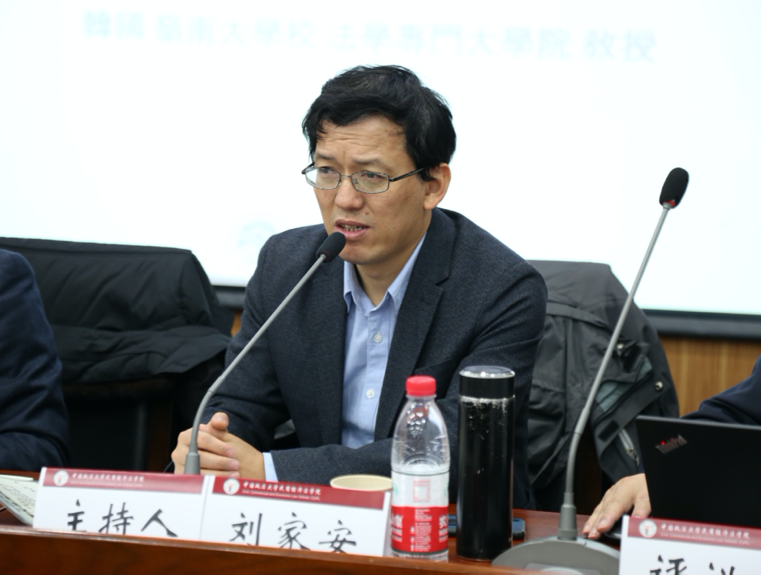
Professor Liu Jiaan chaired the work

Professor Lee Sangwook gave the lecture
At the beginning of the lecture, Professor Liu Jiaan delivered a speech and extended a warm welcome to Professor Lee Sangwook from afar. In the following two hours, Professor Lee Sangwook presented a wonderful academic feast to the teachers and students of our school. Starting with a few brain teasers, Professor Lee first provided some information on the status and role of precedent (Note: Precedent here only refers to that of the Supreme Court of Korea) in the Korean civil law. He pointed out that although it is not a formal source of law, it can bind the judgment of lower-level trials. Therefore, it is very important in Korean judicial practice. It has five functions such as law-making, filling the law loopholes, embodying abstract legal norms, substantially revising legal provisions, and super-adding other elements which are beyond the elements stipulated by provision.Later, Professor Lee talked about his original approaches to legal dispute IRAC that the first step is to review the case to find important facts and clarify the issue; the second step is to find rules that can be applied to the case; the third step is to determine whether the factual relationship meets the application requirements of the rule, and the fourth step is to apply the rule to reach a conclusion. Then, Professor Lee explained a controversial judgement by the Supreme Court in South Korea by taking the example of whether the lessee should be liable for damages to other parts of the leased building when the building is on fire, and he also expressed his opinion. Finally, Professor Lee said to the students of our school “The most important thing to learn in life is ‘How to live ’”.
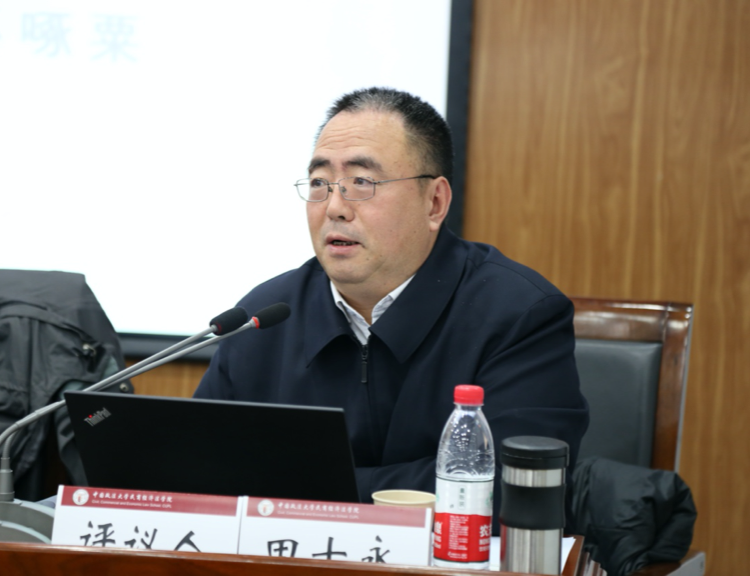
Professor Tian Shiyong reviewed
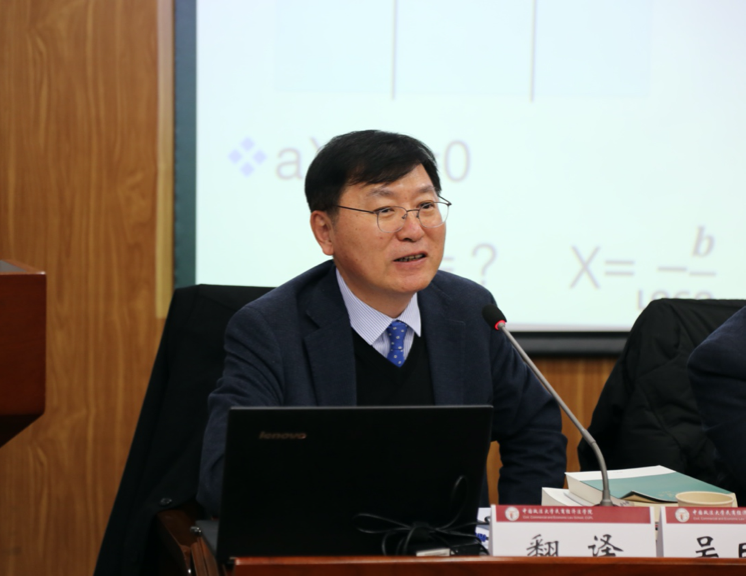
Professor Wu Rihuan reviewed
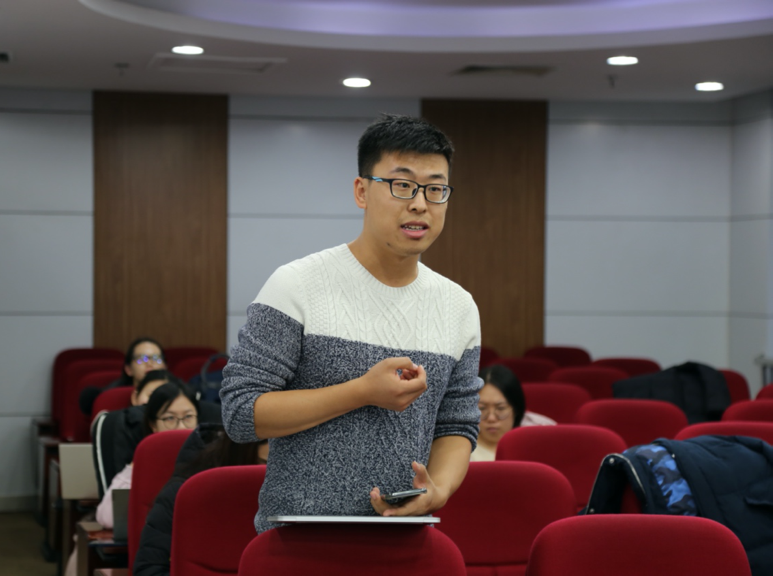
Question-and-answer Portion
At the end of Professor Lee’s report, Professor Liu Jiaan summarized the lecture. Professor Tian Shiyong and Professor Wu Rihuan successively expressed their opinions. Starting from the Korean Civil Code, they described the implementation of our civil law and hope for the forthcoming civil code.
Finally, the lecture ended successfully with the warm applause of the students.
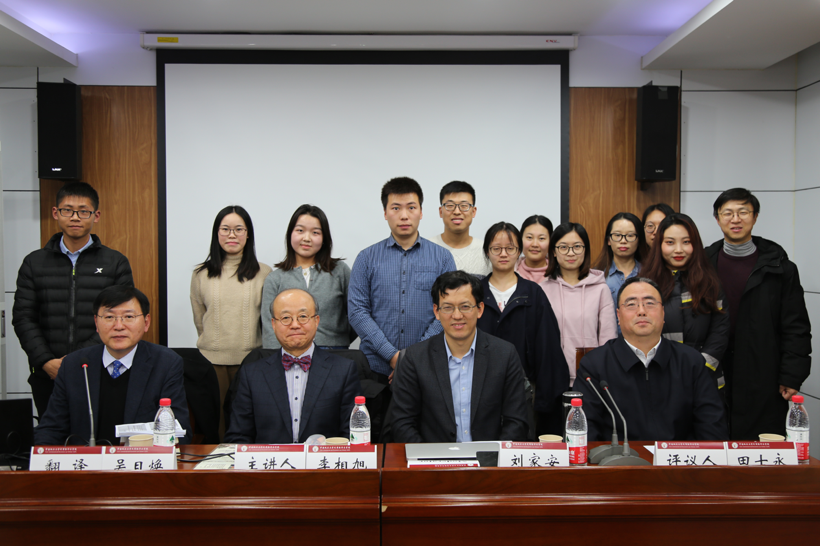
Group photo


